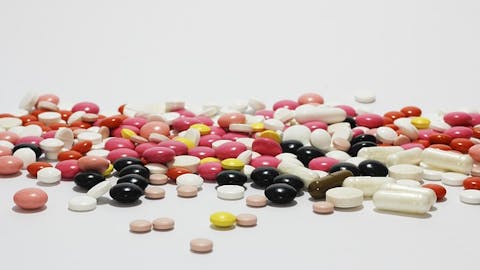Hedge fund managers like David Einhorn, Dan Loeb, and Carl Icahn became billionaires by reaping large profits for their investors, which is why piggybacking their stock picks may provide retail investors with significant returns as well. Many hedge funds, like Paul Singer’s Elliott Management, are quite secretive, but one can still get some insight concerning their favored stocks by analyzing their quarterly 13F filings. Hedge funds’ most popular small-cap picks offer one of the most fertile grounds for generating above-market returns (see more details here), as these stocks are not as widely followed as the stocks of larger companies and often trade at a discount to their intrinsic value. However, Goldman Sachs’ so-called VIP list, which comprises the 50 most-owned stocks in the hedge fund industry, provides evidence that retail investors can also generate high trading profits by following money managers’ moves in mid- and large-cap stocks as well. This basket of stocks outperformed the S&P 500 benchmark on a quarterly basis 64% of the time between 2001 and 2015. With this in mind, let’s check out hedge fund activity in Bristol Myers Squibb Co. (NYSE:BMY).
Bristol Myers Squibb Co. (NYSE:BMY) was in 59 hedge funds’ portfolios at the end of the fourth quarter of 2015. BMY investors should be aware of a decrease in hedge fund sentiment lately. There were 62 hedge funds in our database with BMY holdings at the end of the previous quarter. At the end of this article we will also compare BMY to other stocks including Altria Group Inc (NYSE:MO), UnitedHealth Group Inc. (NYSE:UNH), and Sanofi SA (ADR) (NYSE:SNY) to get a better sense of its popularity.
Follow Bristol Myers Squibb Co (NYSE:BMY)
Follow Bristol Myers Squibb Co (NYSE:BMY)
Receive real-time insider trading and news alerts
Bristol Myers Squibb Co. (NYSE:BMY) is a specialty biopharmaceutical company that focuses on the development of innovative medicines for the treatment of various diseases. The company’s total revenue reached $16.56 billion in 2015, increasing from $15.88 billion delivered in the prior year. Bristol Myers Squibb’s U.S revenue, which accounted for approximately half of total revenue in 2015, grew by 6% year-over-year due to the launch of Opdivo and Daklinza and higher demand for Eliquis and Sprycel. Opdivo was approved by the FDA in late 2014 for the treatment of metastatic melanoma, but the drug has since received approval for five additional indications across three different tumor types. Daklinza is designed to treat HCV (hepatitis C virus), while Eliquis is an oral inhibitor aimed at preventing stroke in patients with atrial fibrillation, and preventing and treating venous thromboembolic (VTE) disorders.
In the meantime, it appears that Bristol Myers Squibb Co. (NYSE:BMY)’s negative publicity around bribery allegations in China has been slowly fading away. In October 2015, the drugmaker agreed to pay $14 million to the U.S. Securities and Exchange Commission to settle charges that its Chinese joint-venture violated the Foreign Corrupt Practices Act. These charges were related to alleged “improper payments” made by hospital officials to drive up drug sales in the world’s second-largest pharmaceuticals market. Let’s not forget to mention that the shares of Bristol Myers Squibb have lost 5% since the beginning of 2016.
With all of this in mind, let’s take a look at the latest trading activity regarding Bristol Myers Squibb Co. (NYSE:BMY).





